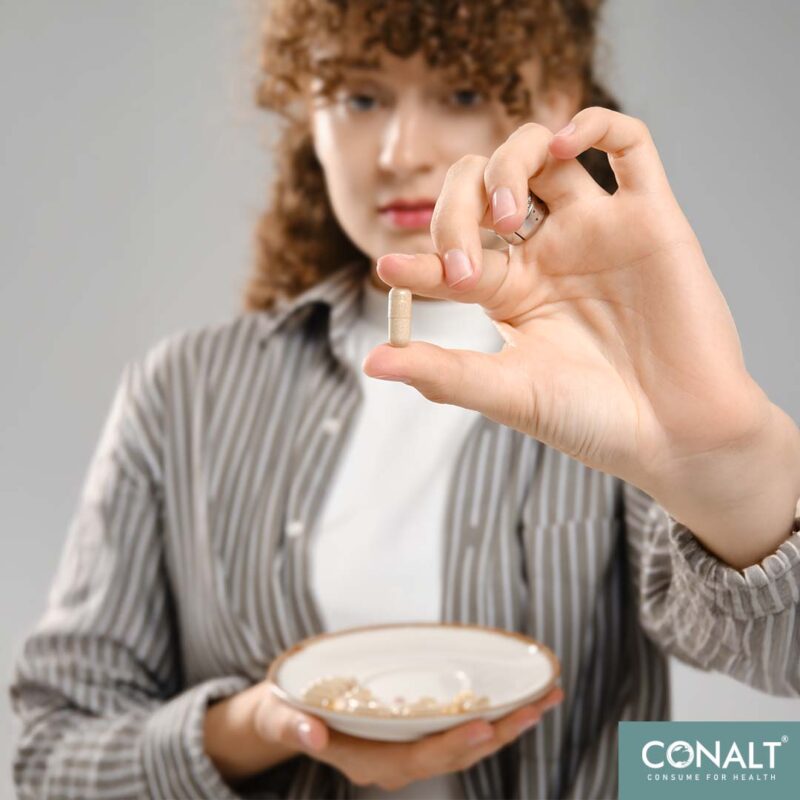What Are Antioxidants? How Do They Benefit Your Health?

Antioxidants are essential compounds that strengthen the body’s defense mechanisms against diseases and are considered one of the keys to a healthy life. They play a critical role in preventing cellular damage caused by free radicals and supporting the immune system. In this article, we will explore what antioxidants are, their benefits to health, and the foods that contain them in detail.
What Are Antioxidants and What Do They Do?
Antioxidants are compounds that neutralize harmful molecules known as free radicals, protecting the body from oxidative stress. Free radicals form during normal metabolic processes or due to environmental factors such as sunlight, cigarette smoke, and pollution. These molecules can damage cells and contribute to aging, cancer, heart disease, and other chronic illnesses.
Antioxidants help minimize these harmful effects. While the body naturally produces some antioxidants, most must be obtained through diet. Nutrients such as vitamin C, vitamin E, and beta-carotene are among the most powerful antioxidants.
How Do Antioxidants Benefit Our Health?
Antioxidants do more than just fight free radicals; they also strengthen the immune system, support cell regeneration, and delay signs of aging. Here are the details of their health benefits;
What Are the Benefits of Antioxidants?
Prevents Cellular Damage: Antioxidants protect cell membranes and prevent DNA damage, helping to reduce the risk of mutations that can lead to cancer.
Boosts the Immune System: Antioxidants like vitamin C optimize immune cell function, providing protection against diseases.
Supports Cardiovascular Health: Antioxidants prevent the oxidation of bad cholesterol (LDL), reducing the risk of clogged arteries and protecting heart health.
Improves Skin Health: Antioxidants like vitamin E protect the skin from free radical damage, slowing down signs of aging.
Supports Brain Function: Oxidative stress is linked to neurological diseases such as Alzheimer’s and Parkinson’s. Antioxidants help preserve brain health and support cognitive function.
Do Antioxidants Have Any Side Effects?
While antioxidants are generally considered healthy, excessive intake may lead to some adverse effects, including:
- Risk of Toxicity: Overconsumption of vitamins A and E can cause toxic effects.
- Disrupting Natural Balance: Free radicals are not entirely harmful; some play a role in immune response. Excessive antioxidant intake can disrupt this balance.
- Supplement Risks: High doses of antioxidant supplements may increase the risk of certain cancers or cardiovascular diseases. Therefore, it is best to obtain antioxidants from natural food sources.
Which Foods Contain Antioxidants?
Many foods are rich in antioxidants. Natural sources are more efficiently utilized by the body. Here are some antioxidant-rich foods;
- Fruits: Blueberries, strawberries, raspberries, pomegranates, and grapes are packed with antioxidants.
- Vegetables: Spinach, broccoli, kale, and carrots are high in antioxidant content.
- Nuts: Walnuts, almonds, and hazelnuts are excellent sources of vitamin E.
- Legumes: Lentils and chickpeas contain polyphenols, which are powerful antioxidant compounds.
- Tea and Coffee: Green tea and coffee are among the strongest antioxidant sources.
- Dark Chocolate: High-cocoa dark chocolate is rich in flavonoids, a type of antioxidant.
What Is the Most Powerful Antioxidant?
The strength of antioxidants is measured by their ORAC (Oxygen Radical Absorbance Capacity) value. The most potent antioxidants include
- Astaxanthin: Found in salmon, this carotenoid is one of the most powerful natural antioxidants.
- Resveratrol: Present in grape skins and red wine, it supports heart health.
- Glutathione: A strong antioxidant naturally produced by the body, playing a role in many metabolic processes.
- Coenzyme Q10: Helps energy production and protects cells from free radical damage.
How Much Antioxidant Should We Consume Daily?
There is no specific daily recommended intake for antioxidants, but a balanced diet can provide sufficient amounts. Experts suggest the following to meet antioxidant needs:
- Consuming 5-7 servings of fruits and vegetables daily is sufficient.
- Variety is key: Eating fruits and vegetables of different colors helps maximize antioxidant intake.
- Dietary Supplements Can Be Used: If needed, antioxidant supplements can support daily intake.
Antioxidants are essential compounds for a healthy life. Their ability to prevent cell damage, support the immune system, and protect against chronic diseases makes them a crucial part of nutrition. However, balanced intake and natural food sources are always the safest and most effective ways to benefit from antioxidants.To maintain a healthy lifestyle, be sure to include antioxidant-rich foods in your daily diet.
Frequently Asked Questions About Antioxidants
No, water alone is not an antioxidant. However, it plays a vital role in maintaining overall health and indirectly supports antioxidant activity. Water helps with cell regeneration, facilitates the removal of toxins from the body, and reduces the effects of oxidative stress. For this reason, drinking an adequate amount of water is recommended to enhance the effectiveness of antioxidants.
Since antioxidants can be naturally obtained from foods, people of all ages can consume them. Natural antioxidants found in fruits, vegetables, and nuts are safe for healthy individuals. However, those considering antioxidant supplements—especially individuals with chronic illnesses, pregnant or breastfeeding women, and those taking regular medication—should consult a healthcare professional. For children, antioxidant supplements should only be given under medical supervision.
Antioxidants have significant benefits for skin health. In skincare products, antioxidants help prevent damage caused by free radicals to skin cells. This reduces the signs of aging, delays the formation of fine lines and wrinkles, and promotes a more youthful appearance. Additionally, antioxidants help even out skin tone, protect against harmful UV rays, and provide a healthier complexion. Commonly used antioxidants in skincare include vitamin C, vitamin E, and ferulic acid.
While antioxidants are essential for a healthy life, excessive intake can lead to health problems. Overconsumption of fat-soluble vitamins such as vitamin A and vitamin E can have toxic effects. Excessive vitamin A intake can cause liver damage, dizziness, and bone health issues, while too much vitamin E can increase the risk of excessive bleeding. Therefore, it is essential to use antioxidant supplements under medical supervision and avoid unnecessary high doses.
The best antioxidant supplement depends on an individual’s specific needs and health condition. Vitamin C is effective for strengthening the immune system, vitamin E supports skin health, and coenzyme Q10 plays a key role in energy production and heart health. Resveratrol is known for its anti-aging effects, while astaxanthin has powerful anti-inflammatory properties. Since each person has different requirements, consulting a healthcare professional before choosing an antioxidant supplement is recommended.
Antioxidants do not directly detoxify the body, but they support its natural cleansing processes. By neutralizing free radicals, they help protect cells from oxidative stress. This allows detoxification organs such as the liver, kidneys, and immune system to function more efficiently. Antioxidants play a significant role in preventing cellular damage caused by toxins, helping the body maintain a healthy balance.
Antioxidants do not directly cause weight loss, but they can support metabolism and contribute to the weight loss process indirectly. For example, catechins in green tea can speed up metabolism and aid in fat burning. Antioxidants also help reduce inflammation, which may improve insulin resistance and support healthy weight control. However, consuming antioxidants alone is not enough to lose weight—maintaining a balanced diet and regular exercise is essential.
Many fruits are rich in antioxidants, including blueberries, pomegranates, strawberries, raspberries, grapes, oranges, kiwis, and red plums. These fruits contain vitamin C, polyphenols, and flavonoids, which are powerful antioxidants. Dark-colored fruits, in particular, are higher in compounds that neutralize free radicals. Regular consumption of these fruits helps strengthen the immune system and support overall cellular health.
Several herbs are rich in antioxidants, including green tea, turmeric, ginger, rosemary, sage, cinnamon, and thyme. These herbs contain phenolic compounds and flavonoids, which have powerful antioxidant properties. For example, curcumin, found in turmeric, has anti-inflammatory and cell-protective effects. Herbal teas and spices are natural ways to incorporate antioxidants into your daily diet.
Natural antioxidants are compounds found in plants, fruits, vegetables, and certain animal-based foods that help neutralize free radicals. Common natural antioxidants include vitamin C, vitamin E, beta-carotene, and selenium. These compounds protect the body from oxidative stress and help maintain healthy cells. Natural antioxidants are most beneficial when obtained from unprocessed foods, as they provide maximum health benefits with minimal side effects.
Reference
İnönü Üniversitesi Tıp Fakültesi Dergisi 17 (2) 143-153 (2010)
GÜLDAŞ M. ve TURANTAŞ F.,2000. Meyvelerin Beslenmedeki Önemi ve Üzümsü Meyvelerin Sağlık üzerine Etkileri. Gıda. Dünya Yayınları. 12:97-100.
WANG, H., CAO, G., and PRIOR, R.L. 1997. Oxygen Radical Absorbing Capacity of Anthocyanins. J. Agric. Food Chem. 45: 304-309.











